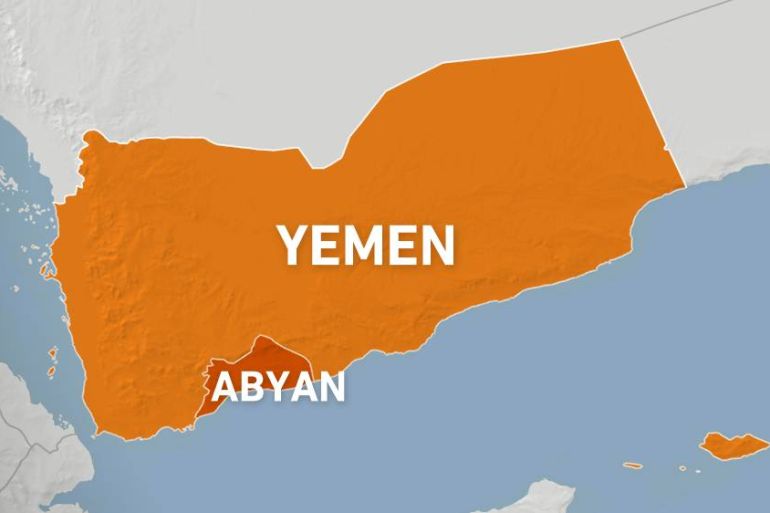Suspected AQAP attack in Yemen kills 5 with links to secessionists
Four Southern Armed Forces fighters also injured in Wadi Omran in Abyan province in attack early Tuesday.

An attack in southern Yemen has killed at least five fighters loyal to a secessionist group, in the latest such assault blamed on an affiliate of al-Qaeda.
The attack took place on Tuesday in Wadi Omran in Abyan province and also wounded four fighters from the Southern Armed Forces, which is loyal to the secessionist Southern Transitional Council, the latter’s spokesman Mohammed al-Naqib said in a statement.
Keep reading
list of 4 items‘I do not know how many days are left’: A Yemeni dreams of Hajj
Analysis: Fighting recedes, but peace in Yemen remains distant
UN food agency worker killed in Yemen
The separatist council is backed by the United Arab Emirates and controls much of Yemen’s south. It is at odds with the internationally recognised government, as it seeks the secession of the territory that formerly made up South Yemen, which united with North Yemen in 1990 to form the Republic of Yemen.
Al-Naqib said the attackers had used mortars and rocket-propelled grenades and had fled to a mountainous area between Abyan and neighbouring Bayda province, where they are being pursued.
No group claimed responsibility for the ambush. But it bore the hallmarks of Yemen-based al-Qaeda in the Arabian Peninsula, or AQAP. The group is seen as one of the more dangerous branches of the organisation.
Last month, suspected AQAP fighters clashed with STC-affiliated forces in the province of Shabwa. At least two STC fighters and one AQAP fighter were killed.
In September, al-Qaeda fighters killed some 20 fighters aligned with southern separatists in an attack in Abyan province.
AQAP has used the yearslong conflict between a Saudi-led coalition and the Iran-aligned Houthis in the impoverished country to cement its influence.
It has survived an intensive campaign over the last 10 years from the US military, the coalition and the Houthis, taking advantage of the chaos in Yemen, tribal sympathies and large and empty swathes of south Yemen.
Yemen’s civil war began in 2014 when the Iran-backed Houthi rebels seized the capital of Sanaa and much of northern Yemen and forced the government into exile.
A Saudi-led coalition, including the UAE, intervened the next year to try to restore the internationally recognised government to power.
In the past year, there has been a heavy focus on diplomatic efforts to seal an agreement between Saudi Arabia and the Houthi rebels.